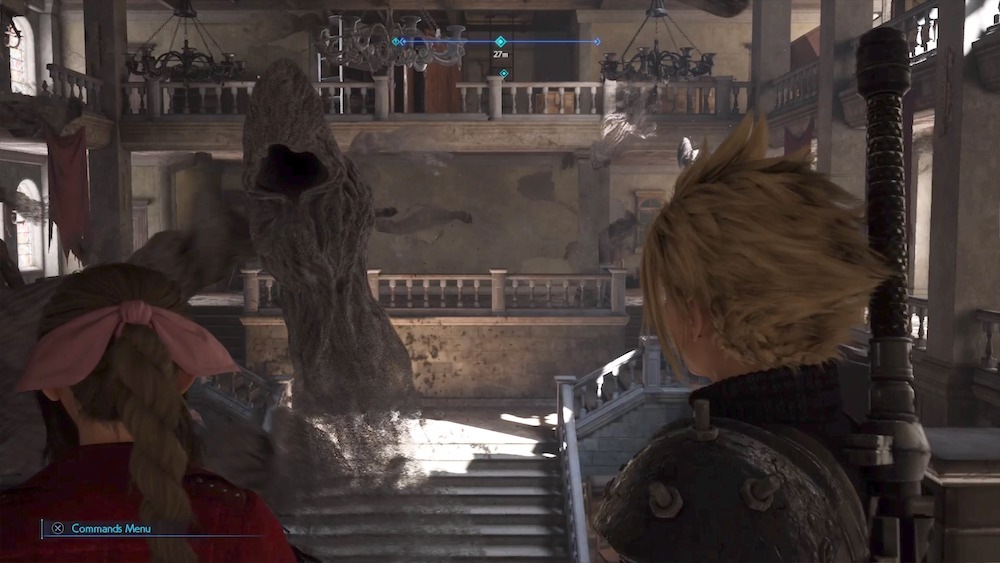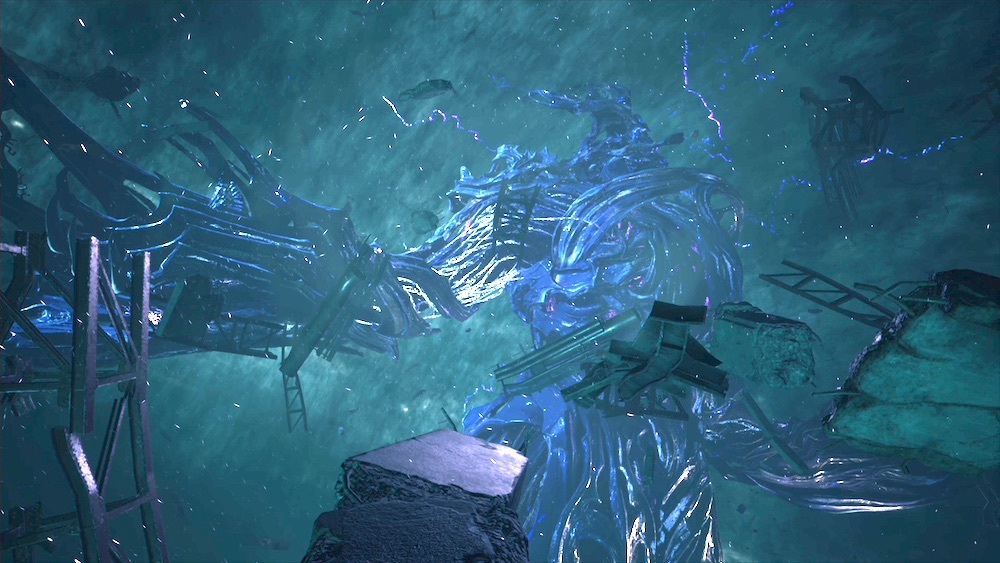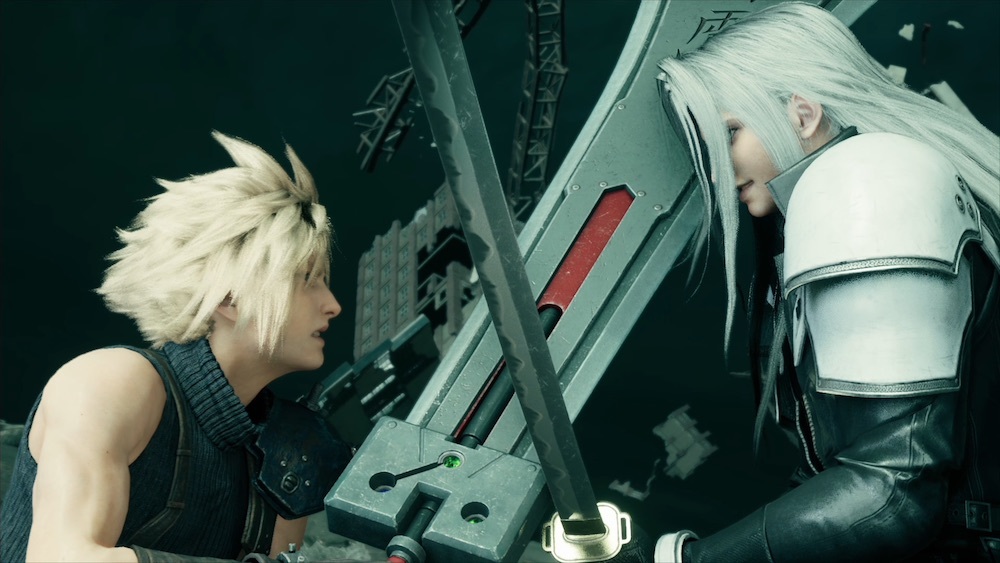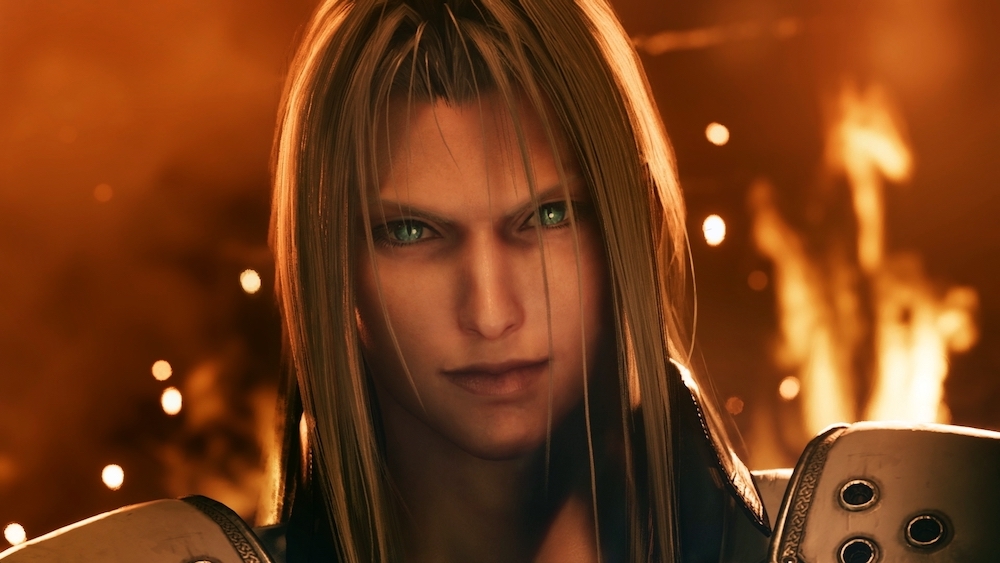Note: This post contains massive spoilers for the ending of Final Fantasy 7 Remake! Don't read unless you've already finished the game.
For the most part, the story of Final Fantasy 7 Remake sticks pretty close to the beats of the original game. Where the remake deviates from its source material, it's usually to expand and enrich, developing the characters and building out the world.
And then you come to the last few chapters of FF7 Remake, where the biggest deviations are found. It's in Chapter 18 in particular that FF7 Remake becomes something more than a modern retelling of the original and adds a whole bunch of new material. But what the hell was actually going on at the Destiny's Crossroads, and what does it all mean? The finale of Final Fantasy 7 Remake is a timeline reboot, and it has massive implications for the inevitable Final Fantasy 7 Remake Part 2, as well as whatever comes next.
What's Up With The Whispers?

To understand what's happening in Final Fantasy 7 Remake, you need to know about one major new addition: the Whispers. You encounter these strange spectral apparitions several times throughout the game, and they seem intent on impacting events--sometimes they hinder Cloud and his friends and attack them, and other times they seem to help.
As Red XIII explains late in the game, the Whispers are working toward an agenda of making sure the story plays out as it was destined to. That basically means that the Whispers' role is to show up at key story moments and make sure things happen more or less the way they did in the original game. You see the Whispers' interventions keep certain characters safe at key moments, like when Aerith nearly falls from the second floor of the church in Chapter 8, or to stop people from interfering with specific events.
The Whispers seem to exist specifically to make sure the events of Final Fantasy 7 Remake occur in the same way they did in the original Final Fantasy 7, although the minor details are obviously changed. For one thing, the Whispers themselves didn't appear in the original game, and if they were influencing events nobody was aware of them. Red XIII and Aerith say the Whispers are under the control of the Harbinger, which is the literal manifestation of destiny. Things are supposed to happen in a certain way, and the Whispers make that happen.
Final Fantasy 7 Remake News
- Final Fantasy 7 Remake Intergrade Review - Materia Improvements
- Final Fantasy 7 Remake Dress Guide: How To Get Every Dress In Wall Market
- What Would Suit Tifa Choices: Final Fantasy 7 Remake Dress Guide
- + Show More Final Fantasy 7 Remake News Links (2)
- Final Fantasy 7 Remake Guide: Corneo's Secret Stash Locations
- Final Fantasy 7 Remake Materia Guide: Essential Materia You Might've Missed
So What's The Remake's Final Boss?

At the end of Final Fantasy 7 Remake, you do battle with the Whisper Harbinger--apparently, the will of destiny as a literal being. It sends various entities to attack you in different ways, and when you defeat those smaller manifestations, you're able to damage the Harbinger itself. The Harbinger also, seemingly, sends a Whisper version of Sephiroth to battle you; when you defeat Sephiroth, he dissipates into Whispers, implying it was never the real villain you were facing.
Getting drawn into a fight to defeat the Harbinger Whisper and defy destiny raises a big question: What changed the events of Final Fantasy 7 that forced the Whispers to intervene in the first place? The presence of the Whispers tells us we're not just seeing another telling of the original game's story; instead, in Remake, we appear to be playing an alternative version of FF7's events--essentially, we're in another timeline.
Wait, Another Timeline?
This is where things get a little (more) muddled. There's a suggestion all throughout Final Fantasy 7 Remake that characters are seeing flashes of future events. Cloud in particular doesn't just see flashbacks of what happened in the past to him, Tifa, and Sephiroth, he also sees images from future events we know happen in the original Final Fantasy 7. Cloud doesn't seem to know exactly what it is he's seeing, but it does appear that those flashes of the future are having an effect on the future. Aerith, too, seems to know more than she's letting on about future events, although she also gives the impression that she also doesn't know exactly what it is she's seeing or why.
In general, though, it seems like the characters are getting flashes of the future and that's changing their reactions to certain events. It also seems like characters are reacting to certain situations differently than they did in the previous game. When Avalanche plans its raid on the Sector 5 reactor in the remake, Barret's initial plan is to leave Cloud behind. It's only after the Whispers intervene and injure Jessie that Cloud gets a spot on the team; in the original game, Barret offered Cloud more gil to join in on the Reactor 5 mission and always meant to bring him along.

The way characters' reactions and actions are changing events is enough to risk changing the FF7 timeline in the remake, so much so that Whispers show up to set things right. For the most part, people can't see them: Cloud theorizes that it's only after the Whispers physically interact with you that you know they're there. There's some suggestion that Aerith is more in tune with the Whispers than everyone else, but she's cagey with details about her experience.
We get some hints about the Whispers' agenda from the Enemy Intel you can get from them during the fights in Chapter 18. Intel on the Whisper Croceo, Rubrum, and Viridi says that each one is "An entity from a future timeline that has manifested in the present day," and that each fights "to protect the future that gave shape to it." Given that each fights similarly to Cloud, Barret, and Tifa, we might even assume that these are Whispers of the characters from the original, fighting you to protect the timeline in which they exist.
As for the Whisper Harbinger, its description reads, "An accretion of Whispers, the so-called arbiters of fate. The creatures appear when someone tries to alter destiny's course. They are connected to all threads of time and space that shape the planet's fate."
Why Is Remake A Separate Timeline?

That's the big question, and we still don't know the answer. It could be some element that'll appear in future FF7 installments, like time travel--after all, Remake is taking a similar tack to what happened in 2009's Star Trek, where time travel caused a change in history that created an alternate timeline from the original franchise, allowing for a reboot movie series. Or it could be some other influence we're not aware of yet.
The answer that seems most likely, however, is that Sephiroth is somehow altering past events. It's Sephiroth, or at least a vision of him, who cuts the portal that allows Cloud and his friends to enter the Whispers' world and fight the Whisper Harbinger. And after the battle, Sephiroth meets Cloud at "the edge of creation" to try to secure Cloud's allegiance.
Note: Spoilers for the FF7 sequel movie, Advent Children, in the paragraph that follows. If you're not familiar with the full FF7 story and want to remain unspoiled for parts of the story that might come later, skip this part.
So What Does This Mean For Later Remake Games?
In Chapter 18, you defeat the Whisper Harbinger, dispel the Whispers, and seemingly vanquish the forces of destiny. As Aerith notes before the fight, on the other side of the battle is "boundless, terrifying freedom." The guard rails are off and there is no will forcing the Final Fantasy 7 Remake story to follow the game of the past.
That could very well be a signal that FF7 Remake's future episodes could differ drastically from the 1997 game. The beats of the remake are mostly the same as the original game, but without the Whispers to force things on track, events could play out very differently. Whispers saved Barret in the Shinra Tower, for instance, but without them, he would have died there, drastically changing the story going forward. "Boundless, terrifying freedom" means the story could play out in any way, but it also means that there's no one left to protect the events and stop them from changing.
In a way, that could mean that all bets are off. Events we expect to see in later FF7 Remake episodes might or might not happen.
Some Things Are Already Different

Note: This portion of the ending discussion contains spoilers for the original FF7 story, which are beats that could appear in later Final Fantasy 7 Remake installments. If you're not familiar with FF7 and are hoping to experience the story fresh through future FF7 Remake episodes, stop reading now.
The ending of Final Fantasy 7 Remake already points out a few major differences in the FF7 timeline that will undoubtedly affect the story going forward--the question is, how big will that effect be?
One of the main scenes from the end of the game shows an FF7 character who hasn't yet really been introduced in the remake, Zack Fair, facing down a host of Shinra troops. It's a scene that appeared in the original FF7 and in the prequel game Crisis Core. In the original FF7 story, Zack stood against the Shinra troops to protect Cloud after the two escaped Shinra and Hojo. Zack fought off the troops but was killed there, and Cloud, confused by Hojo's experiments on him, went on to assume parts of Zack's identity.
But as we see at the end of FF7 Remake, in this timeline, those events apparently were different. Zack fought off the Shinra troops and saved Cloud, but didn't die; instead, he helped Cloud as the two continued on to Midgar. Zack's death was a big part of the story in the original FF7, but it seems that in the remake, he survived.
It's not super-clear as to what's going on in that scene--Whispers are present as Zack prepares to fight the Shinra troops, but it's hard to say if they were about to force Zack's death, if they intervened to save him, or if Zack survived because of your actions in defeating the Harbinger Whisper, retroactively removing the influence of destiny from past events. The Enemy Intel description of the Whisper Harbinger seems to suggest the third option is the right interpretation: that when you defeat the Harbinger in the present, it retroactively changes the past, removing the Whispers from the scene with Zack and, therefore, preventing them from forcing his death.

We might also be seeing another timeline during those scenes, rather than a flashback to earlier in the story of FF7 Remake. During Zack's scenes, we catch sight of a picture of Stamp, the cartoon dog Shinra used as a mascot for its war against Wutai. The version of Stamp in Zack's scenes is different from the one we see throughout FF7 Remake, which could be evidence that we're seeing a different timeline, since Shinra used the Stamp cartoon during the war years earlier. That might be a reach, but showing us a different Stamp in Zack's scenes seems like a significant detail.
Regardless of your read on the scene, it does seem that FF7 Remake wants us to understand the timeline is already changed.
The big question, then, is how these changes will alter future events: Specifically, the impending death of Aerith. That's a huge moment in the original FF7, but just about everyone playing the remake 23 years later knows Aerith's death is coming. With the remake signaling that the future story isn't set in stone, it seems very possible that Aerith could survive the future events of FF7 Remake, or at the very least, that the game's creators want us to think it's possible.
Overall, though, the characters of FF7 Remake defeating destiny means we don't necessarily know where things are going from here--although it's a good bet that the game's creators are signaling that they don't intend to stick to the tale as it was previously written. We'll have to wait and see what that might look like as the story progresses, but FF7 Remake is good enough that Square Enix has earned the benefit of the doubt as it makes changes to one of its classics.

